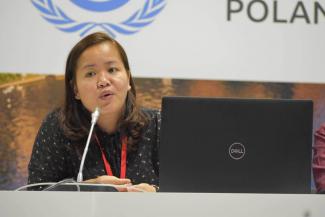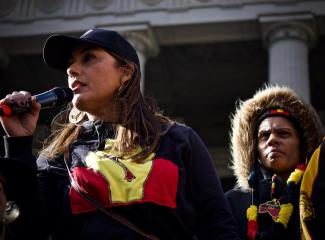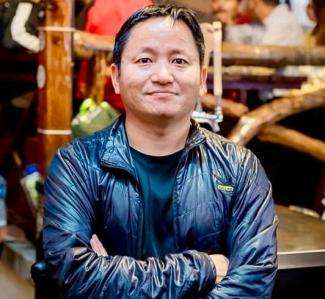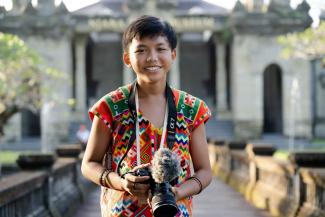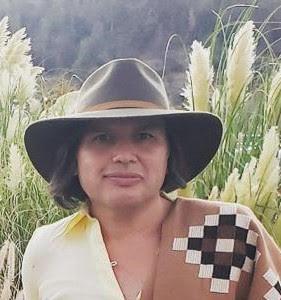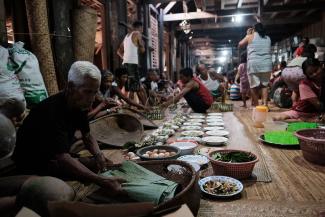
We are still in the middle of the COVID-19 pandemic. Indigenous communities have been among the most disproportionately affected by this COVID-19 crisis. Climate negotiations are one area of major uncertainty right now. The United Nations Climate Change Conference, originally scheduled for mid-November in Glasgow, Scotland, was postponed for one full year. Indigenous observers are fearful that the economic impact of the pandemic may negatively affect advances made by Indigenous Peoples in the last decade. The Unitarian Universalist Service Committee (UUSC) asked six Indigenous leaders about the impact of the pandemic on their lives and communities, as well as their hopes and fears for Indigenous climate justice in post-pandemic times.

Calfin Lafkenche (Mapuche), coordinator of Minga Indígena, Chile
The pandemic has affected our traditional ways of life. Our way of life is communitarian, and today authorities are asking us to keep distance, to avoid contact with other communities. Young Indigenous folks working and studying in cities have been dramatically affected because their classes have been suspended and they do not have a job anymore to afford rent. Many of them have returned to their communities, reconnecting with collective processes of territorial protection and recognizing the generational gap that has driven our people away from the teachings and wisdom of their elders.
We fear that the pandemic will lead governments to overlook international climate agreements and contributions. Consultation rights will be under a lot of strain because communities are not currently allowed to gather and participate meaningfully in the assessment of new extractive projects, and we fear that many of those consultation rights could be threatened in the name of economic recovery.
I hope that this pandemic will help people realize the crucial role that Indigenous Peoples play in terms of conservation and food sovereignty. We expect civil society to be much more open to our traditional knowledge and practices, understanding that when we protect our territories we do it in the name of the well being of all of us, not just Indigenous Peoples. Our goal is to care for everyone above anything else.
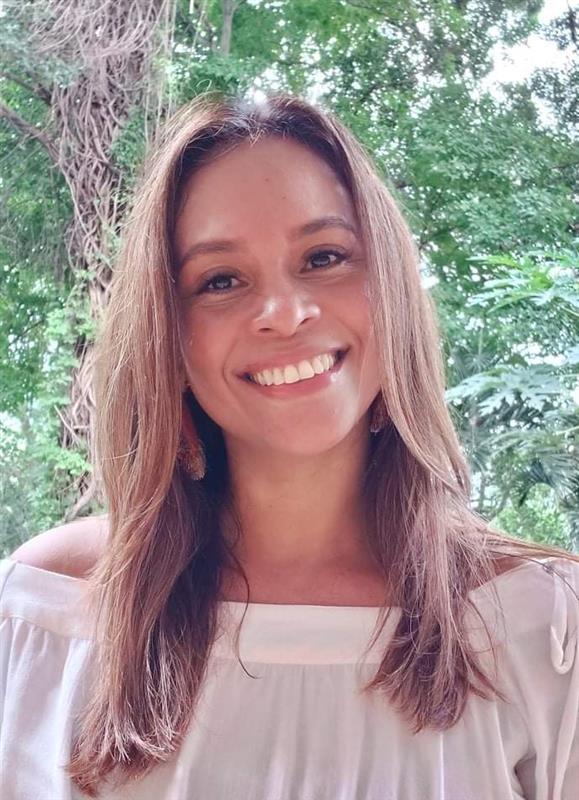
Eileen Mairena Cunningham (Miskitu), secretariat, Indigenous Peoples Major Group for Sustainable Development, Nicaragua
This crisis has disproportionately affected Indigenous Peoples’ health, evidencing their lack of access to adequate health service infrastructures and discrimination. The pandemic has taken the lives of Indigenous elders who are keepers of our traditional knowledge, languages, and spirituality. Those losses are already having a profound impact on our intergenerational dialogues. In addition, the imposition of militarized states has led to increased violence and repression against Indigenous Peoples.
Right now climate negotiations have mostly been paused. Their virtual participation and consultation have emerged as a threat to Indigenous rights given the existing technological gaps and the lack of guarantees for effective representation. Extractivism has not paused during the pandemic, and in some cases those processes have been intensified. We fear that government economic recovery plans will emphasize the role of extractive industries.
The pandemic has also brought some unexpected benefits to Indigenous communities. The lockdown and shift of governments’ attention away from our territories has empowered Indigenous organizations to find autonomous solutions and regain territorial control. Young Indigenous leaders in places like Colombia, México, Myanmar, and Chile have led community-based health initiatives tied to innovative territorial and environmental management strategies. International Indigenous Peoples’ networks have been revitalized with global and regional exchanges that are going to be key for the future of Indigenous climate justice from our territories.
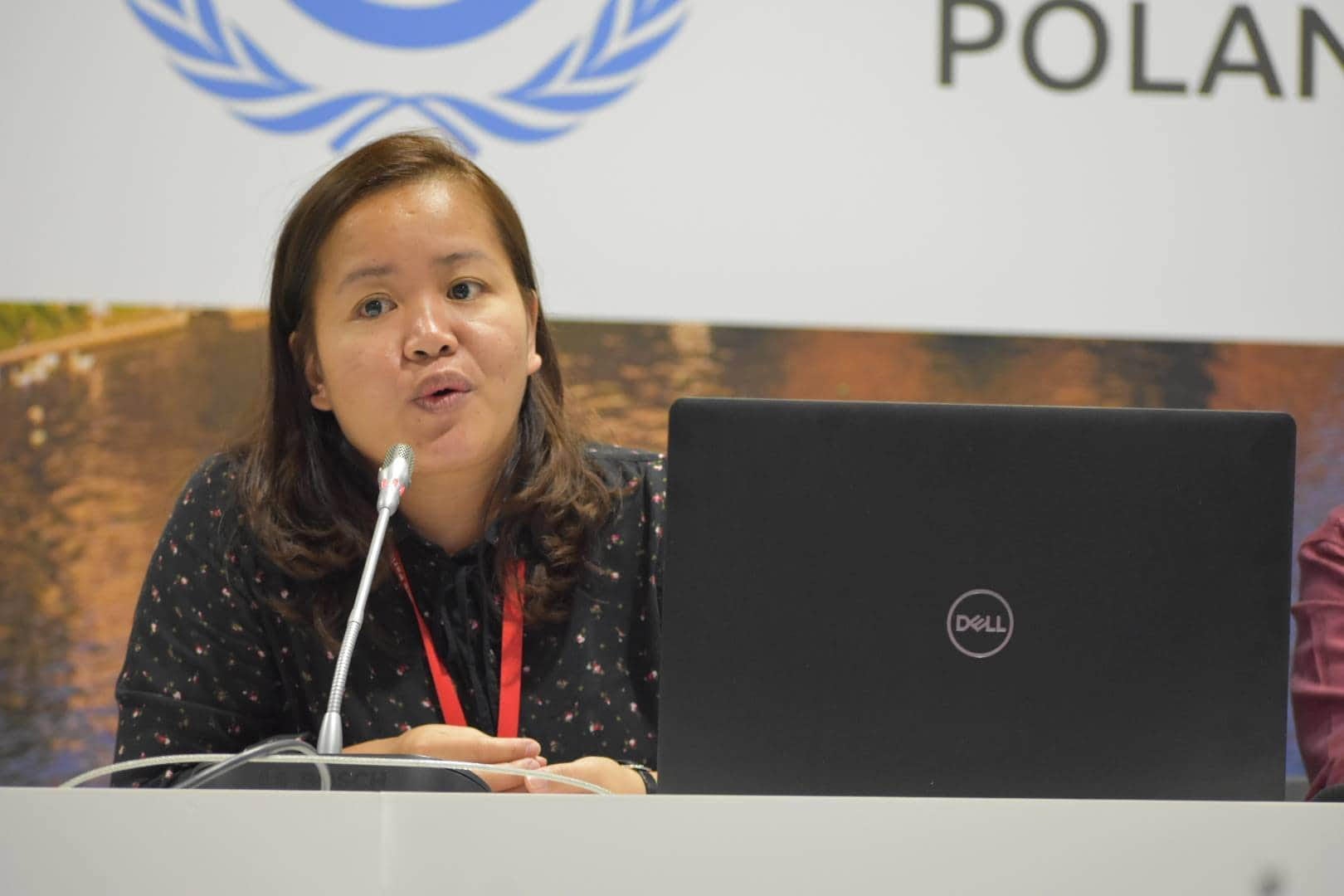
Helen Biangalen Magata (Kadaclan), communications officer at Tebtebba, Philippines
Different Indigenous communities have been on opposite sides of the spectrum during the pandemic in the Philippines. Some communities refused government relief because they had enough food and it is taboo to accept what you don’t need. Meanwhile, many Indigenous Peoples living in cities are daily wage earners and climate change during quarantine government relief was insufficient, putting them at high risk of both COVID and government repression. Some communities have seen a continuation in trends of militarization and invasion of their communities by mining companies who are taking advantage of the lockdown to impose their projects.
This pandemic is obviously a climate change issue, but it does not seem obvious to many governments and institutions. In terms of climate finance, I am afraid that post-COVID there will be a shift of funding to aid limited to direct projects for economic recovery, overlooking crucial Indigenous climate action initiatives.
I hope that the pandemic will allow Indigenous communities to reconnect with each other and with nature; to go back and learn how to preserve food for longer, learn old chants from the elders, beat the gongs. I hope this time will be useful for Indigenous Peoples to become healthier and for duty bearers to understand their obligation to put people and their rights at the center of their work.
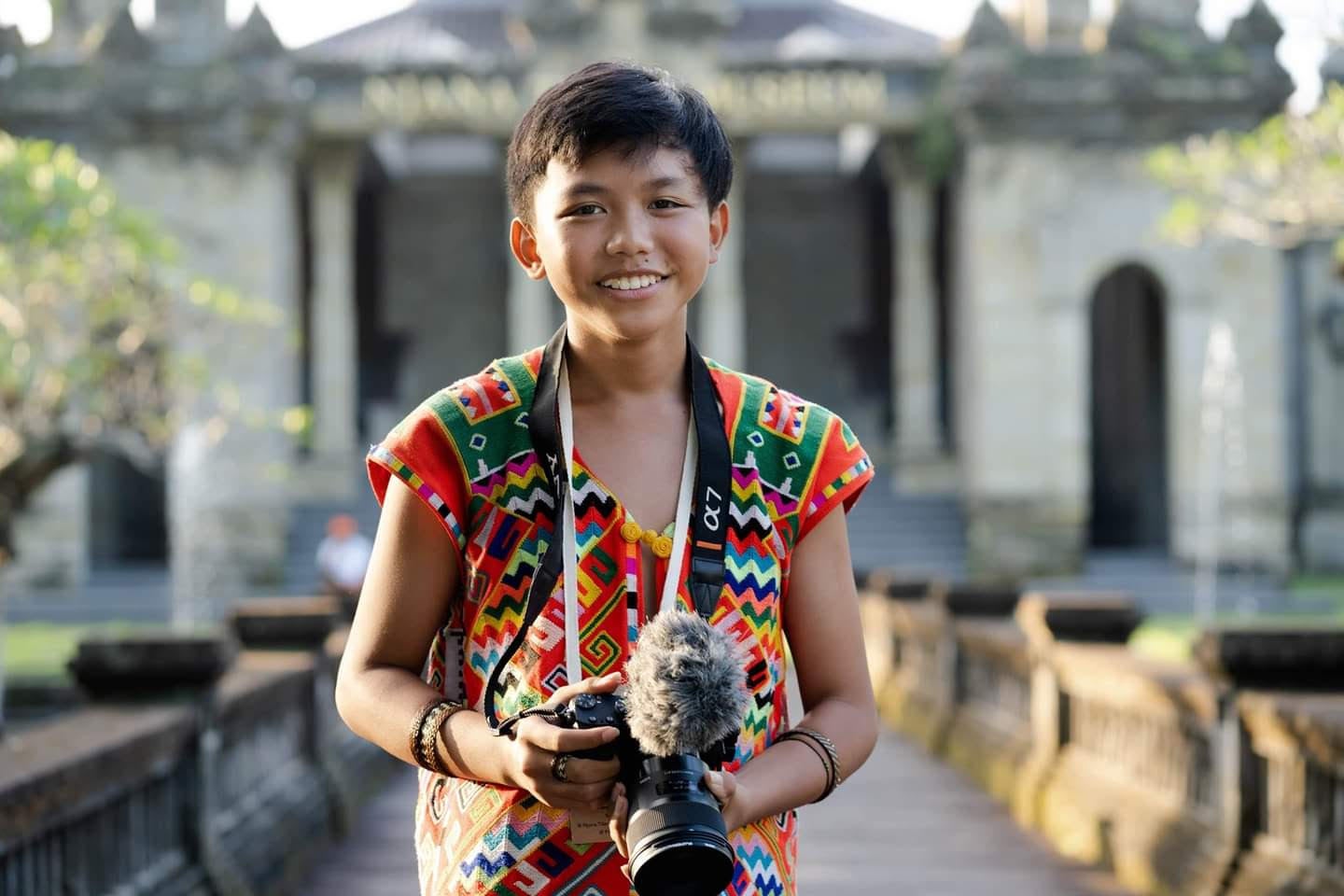
Kynan Tegar (Sungai Utik Dayak Iban), filmmaker, Indonesia
We closed off our community with a ritual called “Ngampun.” We believe human greed in the management of natural resources caused an imbalance that brought about this pandemic. Tight-knit communities like ours are very vulnerable because we live in a communal longhouse and interact constantly. People from outside the village are not allowed to come in, but our lives remain normal, our livelihood is sustained by our forest and our land: we plant and harvest a rice paddy, pick fruits and vegetables from the forest, hunt game, and fish in the river.
Climate change is already threatening our food security with unpredictable vegetation cycles. It is predicted that companies will clear land to regain their pandemic losses. Companies clear land through burnings that often become out of control and cause disastrous forest fires. Indigenous Peoples are scapegoated and their small-scale traditional burnings end up being restricted by the government. Traditional burnings help fertilize land. With the banning of those practices, Indigenous food production is seriously undermined.
This pandemic must be a turning point for us to realize the importance of maintaining balance in nature and our environment. Indigenous communities that still protect their nature are an example for the world. They can close off and have the capacity and knowledge to continue their community life indefinitely, procuring everything they need from the land.
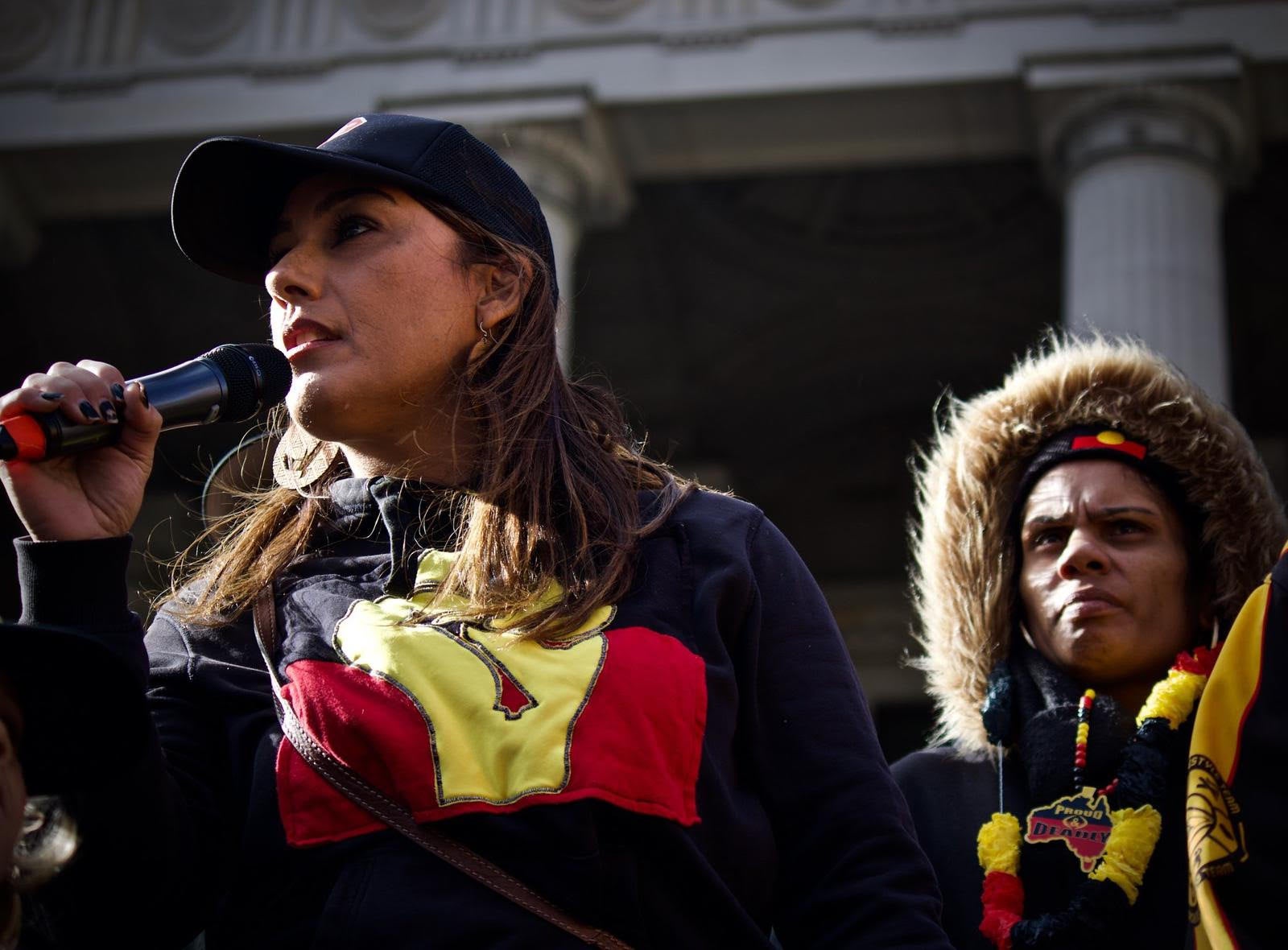
Lidia Thorpe (Gunai/Gunditjmara), Australian federal senator
The pandemic has exposed the systemic racism and inequality that Aboriginal people in Australia have experienced since colonization. It has exacerbated negative and punitive interactions between First Nations’ Peoples and the justice system, including the Black Lives Matter issues of incarceration and deaths in custody. It has exposed the poor access Aboriginal people have to health information and services, including access to testing and prevention measures.
COVID-19 has meant that First Nations grassroots activists can’t be out protecting and defending country and there is less public attention on climate justice issues. We are concerned that the pandemic has meant that issues that are equally important to First Nations Peoples, such as the climate crisis, have taken a back seat. Mining, oil, and energy industries are continuing their business as usual, disrupting land, water, and Aboriginal values.
During the lockdown, Australians are spending more time immersed in nature, getting out of their homes and exercising. We hope that this reconnection to nature will trigger greater appreciation for Australia’s incredible natural environment and its Aboriginal values and the need to protect them, and that the protection of natural and cultural values will be at the heart of economic recovery and jobs for Aboriginal people.
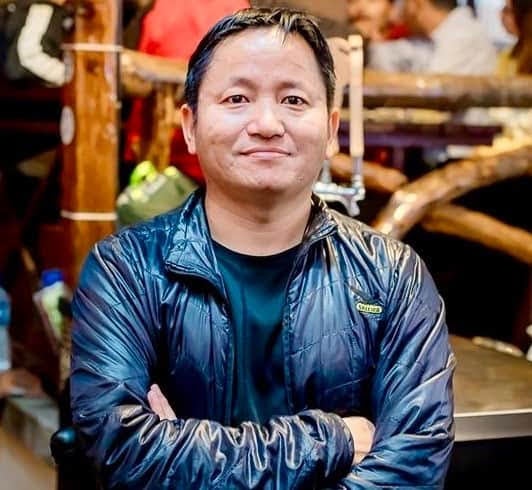
Tunga Bhadra Rai (Rai), national coordinator of Nepal Federation of Indigenous Nationalities
Indigenous communities have enforced customary law to prevent the spread of the virus, mobilizing young people to control access to their communities. Collectivism and reciprocity have been vital, as well as the use of traditional knowledge and healing practices to treat non-urgent health problems while access to hospitals is limited in remote areas. During these times of isolation, traditional occupations like carving, knitting, weaving, and agriculture have seen a resurgence, energizing community life.
We fear that authorities will use the pandemic to shift the focus away from climate action, diluting the advances of Indigenous Peoples. Communication technology gaps and mobility restrictions are preventing effective representation. The lack of in-person meetings during the pandemic will have long-term consequences for meaningful consultations with Indigenous Peoples and the protection of rights. Mobility restrictions are preventing Indigenous Peoples’ access to their forests and other communitarian lands and territories for their cultural and livelihood practices, while posing an opportunity for land grabbing and illegal land occupation by corporations.
Indigenous Peoples are returning to their ancestral lands, reconnecting with older generations and resuming learning processes interrupted by migrations. Lockdowns offer a crucial opportunity to reconsider where the world is going, reckoning with the evident fragility of the contemporary global economy and ways of life. Lessons from the pandemic should serve to understand that we need a paradigm shift that puts human rights and Indigenous rights above corporate greed.
— Leonardo Valenzuela Pérez is a human rights researcher at UUSC in Cambridge, MA. He holds a PhD in Human Geography from the University of Sydney, Australia.
This article was written in collaboration with Unitarian Universalist Service Committee as part of a series highlighting the resilience, wisdom, and power of Indigenous communities as they face the climate crisis.
Photo by Kynan Tegar

